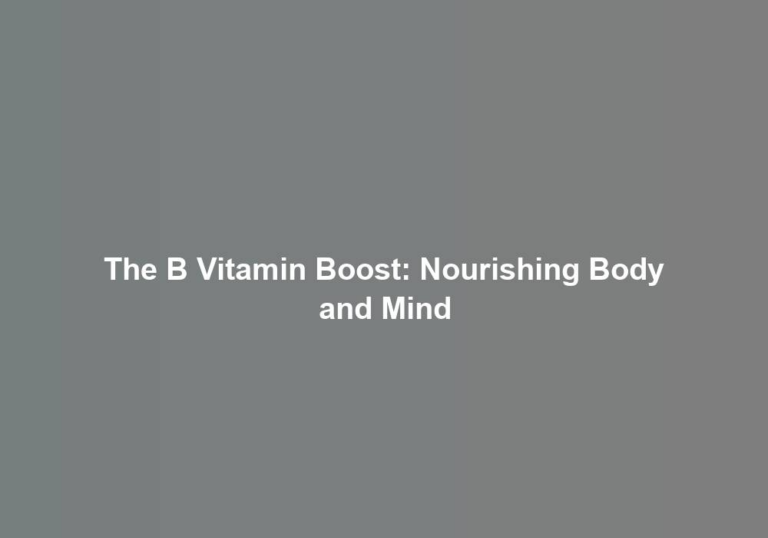Supplementing Wellness: A Deep Dive into Dietary Supplements
YouG??ve probably heard the old saying, G??You are what you eat.G?? When it comes to your wellness, this adage holds true, especially when considering the role of dietary supplements. But how do you navigate the vast world of supplements to find whatG??s right for you? ThereG??s a lot to consider, from understanding the different types of supplements to weighing their benefits against potential risks. ItG??s a complex landscape, but by the end of this discussion, youG??ll have a much clearer understanding of how dietary supplements can fit into your wellness routine.
Understanding Dietary Supplements
To understand dietary supplements, it is important to recognize that they are intended to provide nutrients that may not be consumed in sufficient quantities through regular diet. These nutrients can include vitamins, minerals, amino acids, and fatty acids. Dietary supplements come in various forms, such as pills, capsules, powders, and liquids, and are not considered a substitute for food, but rather a complement to a healthy diet. When considering the use of dietary supplements, it is crucial to be aware of regulatory guidelines set forth by government agencies, such as the Food and Drug Administration (FDA), to ensure the safety and quality of these products.
Scientific evidence forms the foundation for understanding the efficacy and safety of dietary supplements. Research studies, clinical trials, and systematic reviews provide valuable insights into the potential benefits and risks associated with specific supplements. It is important to note that while some supplements have shown promising results in scientific studies, others may lack substantial evidence to support their purported health claims. Therefore, it is essential to critically evaluate the scientific evidence available for each supplement before making informed decisions about their use.
Navigating the realm of dietary supplements can be overwhelming, given the vast array of products and conflicting information available. By staying informed about regulatory guidelines and relying on scientific evidence, you can make well-informed choices regarding the use of dietary supplements to support your overall health and wellness. Always consult with a healthcare professional before incorporating new supplements into your routine, especially if you have existing health conditions or are taking medications.
Types of Dietary Supplements
Explore the diverse array of dietary supplements available, each designed to provide specific nutrients that may be lacking in your regular diet.
When considering dietary supplements, there are two main types to be aware of: herbal supplements and vitamin supplements.
-
Herbal Supplements
-
Imagery: Imagine walking through a garden, plucking fresh herbs known for their potential health benefits. The use of herbal supplements, derived from plants, has been a part of traditional medicine for centuries. Today, scientific evidence supports the effectiveness of certain herbal supplements in promoting wellness and addressing specific health concerns. For example, herbs like turmeric and ginger are known for their anti-inflammatory properties, while echinacea is believed to support the immune system. ItG??s important to research and consult with a healthcare professional before incorporating herbal supplements into your routine to ensure safety and effectiveness.
-
Vitamin Supplements
-
Imagery: Picture a vibrant assortment of fruits and vegetables, bursting with essential vitamins and minerals. Vitamin supplements are designed to fill gaps in your diet, providing concentrated doses of specific nutrients. Scientific evidence has established the importance of vitamins in supporting various bodily functions. However, itG??s crucial to adhere to recommended dosages, as excessive intake of certain vitamins can have adverse effects. For instance, vitamin D supports bone health, while vitamin C is vital for immune function. Understanding your individual nutritional needs is key to determining which vitamin supplements may benefit you.
Benefits of Dietary Supplements
After familiarizing yourself with the types of dietary supplements available, itG??s important to understand the potential benefits these supplements can offer for your overall health and well-being. Dietary supplements can play a crucial role in improving health and boosting immunity, especially when used in conjunction with a balanced diet and healthy lifestyle.
One of the primary benefits of dietary supplements is their ability to fill in the nutritional gaps that may exist in your diet. Despite your best efforts to eat a well-rounded diet, it can be challenging to obtain all the essential nutrients solely from food. Supplements can provide the necessary vitamins, minerals, and other nutrients that your body needs to function optimally.
Furthermore, certain dietary supplements have been shown to support immune function. For example, vitamin C and zinc are well-known for their immune-boosting properties. During times of increased stress or when your immune system needs extra support, these supplements can be particularly beneficial.
In addition to this, some individuals may have specific dietary requirements due to medical conditions, age, or lifestyle choices. In such cases, dietary supplements can be a convenient way to ensure that these unique nutritional needs are met.
ItG??s important to note that while dietary supplements can offer significant benefits, they should not be seen as a replacement for a healthy diet. Rather, they should complement your existing dietary habits and lifestyle choices to support your overall health and well-being. Always consult with a healthcare professional before starting any new supplement regimen to ensure it aligns with your individual health needs.
Risks and Side Effects
When considering dietary supplements, it is important to be aware of potential risks and side effects that may accompany their use. While supplements can offer benefits, itG??s crucial to understand the potential dangers and common misconceptions associated with their consumption.
Potential Dangers:
-
Interactions with Medications:
-
Some dietary supplements can interact with prescription or over-the-counter medications, leading to adverse effects. For example, St.-?JohnG??s wort can reduce the effectiveness of certain medications, including antidepressants, birth control pills, and blood thinners. ItG??s essential to consult with a healthcare professional before combining supplements with medications.
-
Calcium supplements can interfere with the absorption of certain antibiotics, thyroid medications, and iron supplements.
-
Overdosing and Toxicity:
-
Consuming excessive amounts of certain vitamins or minerals can lead to toxicity. For instance, an overdose of vitamin A can cause dizziness, nausea, and even liver damage. Iron supplements, when taken in high doses, can result in gastrointestinal distress and may be toxic to organs like the liver and heart.
Understanding these potential dangers and dispelling common misconceptions surrounding dietary supplements can help you make informed decisions about their use. Always consult with a healthcare provider or a registered dietitian before incorporating supplements into your routine to minimize the risk of adverse effects and ensure their safe and effective use.
Choosing the Right Supplements
Considering the potential risks and side effects discussed earlier, it is vital to make informed decisions when choosing the right dietary supplements for your health needs. To ensure supplement effectiveness, itG??s crucial to research and select products that have been scientifically studied and proven to provide the intended benefits. Look for supplements that have undergone independent testing by reputable organizations such as the U.S. Pharmacopeia (USP), NSF International, or ConsumerLab. These organizations evaluate the quality and purity of supplements, giving you confidence in your choices.
In addition to assessing supplement effectiveness, itG??s important to pay close attention to dosage recommendations. While supplements can offer health benefits, taking excessive amounts can lead to adverse effects. Always follow the dosage instructions provided on the product label or as recommended by a healthcare professional. Remember that more is not always better, and exceeding the recommended dosage can be harmful to your health.
When choosing supplements, consider your individual health needs and consult with a healthcare provider to determine which ones are right for you. Keep in mind that dietary supplements are meant to complement a healthy diet, not replace it. Strive for a balanced approach that includes a variety of nutrient-dense foods and use supplements as a targeted addition to support your overall well-being. By making informed choices and being mindful of dosage recommendations, you can maximize the benefits of dietary supplements while minimizing potential risks.
Incorporating Supplements Into Your Routine
To effectively incorporate supplements into your routine, it is essential to establish a consistent schedule for taking them each day. Consistency in the timing and dosage of your supplements is crucial for their effectiveness. Here are some practical tips to help you seamlessly integrate supplements into your daily routine:
-
Morning Routine
-
Take any supplements that are best absorbed with food, such as fat-soluble vitamins, during breakfast.
-
Consider setting a reminder on your phone or leaving the supplements next to your breakfast items to help establish this habit.
-
Evening Routine
-
Reserve the evening for supplements that are recommended to be taken on an empty stomach, like certain amino acids or herbal extracts.
-
Incorporate them into your evening wind-down routine, perhaps placing them next to your toothbrush as a reminder before bedtime.
Conclusion
So, next time youG??re at the store and thinking about grabbing a dietary supplement, consider this: Did you know that over half of American adults take dietary supplements regularly? With so many options available, itG??s important to do your research and choose supplements that are right for you. Remember to consult with a healthcare professional before adding any new supplements to your routine. Stay informed and make the best choices for your wellness journey.







